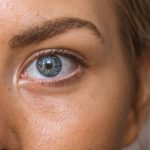What is Macular Degeneration and What Can I Do to Prevent It
Age-Related Macular Degeneration (AMD) is a leading cause of vision loss for adults over the age of 55. Patients with a family history of AMA often ask what is macular degeneration and whether it is possible to prevent developing it. Like many conditions, AMD involves a complicated mix of heredity and lifestyle factors.
While no one can change their heredity, we all have control over some of our lifestyle risk factors. Before offering suggestions to prevent age-related macular degeneration, it is essential that you know some basic information about AMD. When it comes to your health, knowledge is power.
What is Macular Degeneration?
Age-related Macular Degeneration (AMD) is a condition that destroys central vision and as the name suggests, it develops as a person ages. Millions of American seniors suffer from AMD. Sadly, there is currently no cure for AMD and its effects are irreversible.
Fortunately, you may be able to decrease your risks of developing macular degeneration by mitigating some of the common lifestyle risk factors. Also, if you suffer from AMD, your eye care professional may prescribe corrective eyewear or other tools to help you cope and to preserve your quality of life.
There are two primary variations of Age-Related Macular Degeneration:
Wet Exudative Macular Degeneration accounts for around 10% of the cases and refers to a condition where abnormal blood vessels grow underneath the retina.
Dry macular degeneration accounts for around 90% of all cases and is caused by atrophy.
Both types of AMD result in vision loss. Screenings and early treatment are essential. Also, lifestyle choices may make a difference.
What are the Risk Factors of Developing Macular Degeneration?
Before exploring how you may be able to prevent macular degeneration, you need to understand the risk factors involved. Some of these risk factors are beyond your control, while others are connected to your lifestyle.
Macular Degeneration Risk Factors That You Can’t Control
Age – this is the top risk factor impacting around two-thirds of adults over 75.
Family History – like many other conditions, if you have macular degeneration in your family history you face a greater risk.
Biological Gender – If you were born female your risk is higher.
Race – Caucasians experience AMD more often than people of other ethnicities.
Eye Color – people with lighter eye colors seem more at risk possibly because they have less natural sun protection.
Unfortunately, you can’t change your family history, biological gender or age. However, if you have any of those risk factors then you may want to be extra careful to manage the risk factors within your control. Also, this increased awareness also means that you will want to regularly visit an optometrist for preventative screenings and early treatment.
Macular Degeneration Risk Factors You Can Control or Influence
Smoking – smoking interferes with your body’s ability to deliver oxygen to your organs including your eyes. A healthy retina consumes oxygen at a rapid rate.
Too Much Sun Exposure – sun damage and ultraviolet light causes premature aging throughout the body including your eyes.
Obesity – people with a higher body mass index (BMI) or higher body fat levels are more likely to suffer from macular degeneration than people within healthy weight ranges.
Diet – High blood cholesterol or blood sugar levels may be associated with macular degeneration. A healthy diet helps regulate blood sugar, blood pressure, and cholesterol and also helps treat or prevent obesity.
Blood Pressure – high blood pressure may constrict blood vessels and as a result, the eyes receive less nourishment.
Activity Level – Fitness and an active lifestyle improve circulation and cardiovascular health. The relationship may be indirect, but physical activity may help prevent other risk factors as well as help keep your eyes nourished.
Do those lifestyle factors sound familiar? Even if living a healthy lifestyle doesn’t stop you from developing AMD, you may still enjoy improved health and quality of life as you age due to living a healthy lifestyle.
What You Can Do to Help Prevent Age-Related Macular Degeneration
After considering the risk factors, there are things you can do to help preserve your vision and eye health as you age.
If you smoke, consider quitting. We know quitting smoking is never easy, but it is one of the best things you can do for your eye health as well as your cardiovascular health.
Protect your eyes from the sun by wearing brimmed hats and sunglasses that provide broad-spectrum UV protection.
Eat a healthy diet consisting of fresh produce, healthy fats, and lean proteins. Practice portion control and avoid overeating.
Aim to include moderate physical activity in your daily life. The Center for Disease Control recommends that adults aim for at least 2 and a half hours of moderate physical activity each week. Health benefits further increase with at least 5 hours of weekly moderate activity. Moderate activity includes yard work, housework, gardening, and any aerobic exercise that passes the talk test.
The talk test refers to an activity that allows you to carry on a basic conversation. It should be vigorous enough that you can’t sing or hold longer winded conversations. More vigorous activity is also beneficial for overall fitness, be sure to talk with your physician about any questions you have about exercise and physical fitness.
If you are overweight, consider using diet and exercise to reach a healthy weight range.
If you have high blood pressure, see your doctor. If you can’t treat it through diet and exercise, follow any treatment plan prescribed by your physician.
Visit an optometrist for regular screening exams. Also, if you need vision correction then consider wearing lenses that offer UV protection. If you don’t need corrective lenses, talk with your eye doctor about which sunglasses offer adequate protection from damaging UV rays.
For AMD or any other vision concerns, your optometrist is your ally in maintaining healthy eyes. Be sure to visit your eye doctor as recommended for screening, preventative health, and early treatment of developing conditions. Charlotte residents trust their eyes to Piedmont Eye Care. Call us today to schedule your eye exam.





